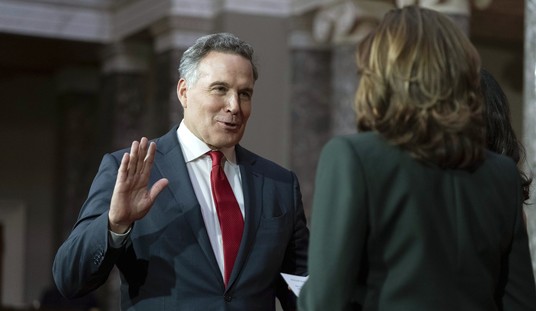With less than one month remaining until Americans head to the polls to determine which party will control the upper chamber of Congress for the remainder of the Obama presidency, the race for control of the lower chamber has been largely overlooked by the press.
Many have noted that the nature of the current political environment in combination with the extent of the GOP’s gains in the House shorn up by favorable reapportionment in many states following the 2010 census has put retaking the lower chamber out of the Democrats’ reach in 2014. Some House Democrats are suggesting, however, that the party may be ceding control of that chamber to the GOP for the foreseeable future.
Democratic strategists speaking to The Hill on the condition of anonymity expressed significant concern over the fact that outside groups, most notably those representing organized labor, have determined that they will spend almost exclusively on behalf of embattled Senate Democrats this cycle.
“According to public data compiled by a Democratic source tracking outside spending, liberal coalitions — labor, green and women’s groups — have spent $18 million less than what they invested in 2012,” The Hill uncovered.
One Democratic strategist, speaking about the party’s future prospects in the House, talked in almost apocalyptic terms.
“A month ago or two months ago, I would have said we could probably lose four, five, or six seats, and still have a legitimate shot next cycle,” the unnamed strategist said. “But if we lose double digits, there’s no way we can keep talking about 2016. That’s not a rebuilding year — that’s trying to survive.”
A piece via Politico’s Alex Isenstadt revealed the extent of even the Democratic Congressional Campaign Committee’s triage efforts which have left more than a few key Democrats seeking their last rites.
Politico reported on Monday that the DCCC dropped a plan to air ads in support of Democratic candidates in 11 GOP-held districts and will instead spend primarily on behalf of threatened incumbents. The “D-trip” is now planning on airing ads in support of just two candidates seeking to unseat Republican officeholders.
“The spending decisions come four weeks before a midterm election that is proving perilous to Democrats, who are 17 seats deep into the House minority and are almost certain to see their delegation shrink further,” Politico reported. “Many Democratic strategists privately concede they are likely to lose about six seats — a total that could grow should the environment deteriorate further.”
As part of the plan, Democrats will cancel planned TV advertising in a group of districts held by Republican lawmakers, all of which are now considered essentially out of reach. They include the suburban Philadelphia districts held by Rep. Mike Fitzpatrick and retiring Rep. Jim Gerlach, the California districts of Reps. Jeff Denham and David Valadao, and the Illinois district of Rep. Rodney Davis. The group will also cancel planned commercial airtime against Iowa Rep. Steve King, New York Rep. Tom Reed, and in three Michigan districts held by Republicans
The DCCC will also cancel planned TV advertising in an upstate New York district from which a Democratic incumbent, Rep. Bill Owens, is retiring. The race for Owens’ seat, Democrats now concede, strongly favors Republicans.
In exchange, Democrats will increase financial support for four party incumbents: Illinois Reps. Brad Schneider and Bill Enyart, Minnesota Rep. Rick Nolan, and New York Rep. Sean Patrick Maloney. Each is locked in a tight race against a Republican challenger.
The Washington Post took a look at the House landscape in late September and noted that, should a wave election in favor of Republicans materialize, the GOP majority in the House could be the biggest it has been since 1929 – the year in which the stock market crash eventually led to an era of Democratic dominance in the House which went nearly unbroken until 1994.
The Rothenberg Report moved eight more seats toward the Republicans. In total, it has 229 seats that Republicans are likely to win to the Democrats’ 190. The Cook Political Report, which does similar assessments, puts the Republican number in the same place, but figures 187 seats are pretty safe to give to Democrats. That means that Rothenberg sees Republicans holding 229 to 245 seats; Cook sees it as 229 to 248. The Post’s projection tool figures Republicans will hold 244 seats at this point.
Democrats will be hoping for a wave in favor of their presidential candidate in 2016 to reverse the GOP’s Obama-era gains, an unlikely prospect given the difficult time a two-term incumbent’s party has of maintaining control of the White House. Baring the election of a Republican president who faces a stiff backlash in the 2018 midterms, Democrats will soon confront the fact that they may be unable to retake the House until after the 2020 census and subsequent reapportionment that might reverse some of the GOP’s 2010 gains.
But for those Democrats imperiled today, the prospect of a favorably political landscape in 2022 is decidedly cold comfort.







Join the conversation as a VIP Member